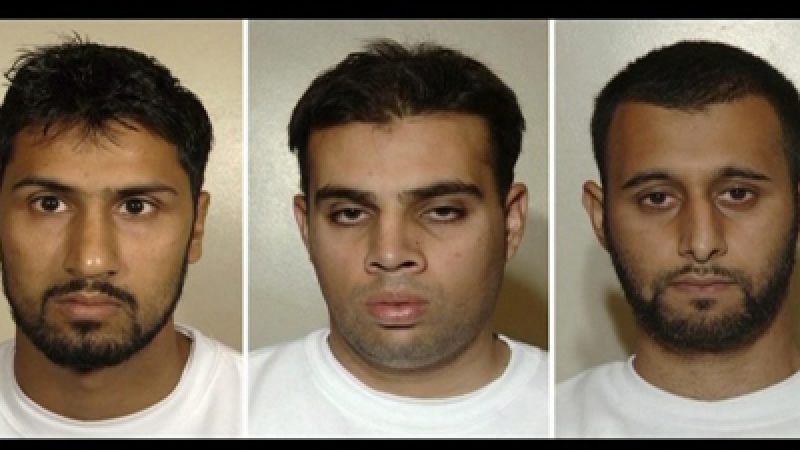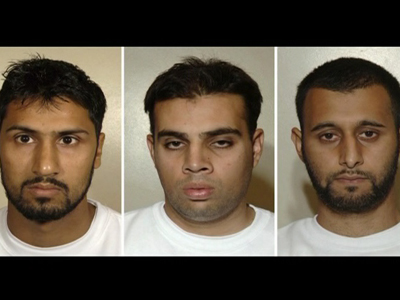
Three British Suicide Bombers Found Guilty

Three years ago, British detectives stopped a mid-flight suicide bomb attack plot on time. Yesterday, three of the suspected attackers were found guilty.
Three Muslim Britons were found guilty on Monday (September 7th) of plotting to blow up transatlantic airliners in mid-flight suicide attacks. They had planned to use bombs made from liquid explosives hidden in soft drink bottles.
The ringleader was Abdulla Ahmed Ali, 28, while Assad Sarwar, 29, gathered the bomb ingredients at his home near London.
Prosecutors say the bombers intended to simultaneously destroy at least seven planes between London’s Heathrow airport and the United States and Canada in August 2006.
[Sue Hemming, Crown Prosecution Service]:
„The men intended to explode the devices whilst in the air. Other evidence supported this, including notes written by Abdulla Ahmed Ali, the ringleader, on how to avoid the suspicion of airport security. Details of flights to the US and Canada were found on the documents and on a USB memory stick.“
Some of the men also recorded so-called martyrdom videos. U.S. officials say the carnage would have been as horrific as the Sept. 11, 2001 attacks on New York and Washington D.C. British home affairs minister Alan Johnson welcomed the convictions.
[Alan Johnson, British Home Affairs Minister]:
„This case reaffirms the fact that we face a real and serious threat from terrorism. This was a particularly horrendous plot which would have led to murder and mayhem on an unimaginable scale. The police, security services and CPS have done an excellent job in bringing these people to justice as part of the largest and most complex counter terrorism operation ever in the UK.”
The al Qaeda plot was suspected just days from being put into operation. It caused huge worldwide repercussions leading to tight restrictions on the amount of liquids passengers could take on board of an aircraft.
 (NTDTV)
(NTDTV)



























vielen Dank, dass Sie unseren Kommentar-Bereich nutzen.
Bitte verzichten Sie auf Unterstellungen, Schimpfworte, aggressive Formulierungen und Werbe-Links. Solche Kommentare werden wir nicht veröffentlichen. Dies umfasst ebenso abschweifende Kommentare, die keinen konkreten Bezug zum jeweiligen Artikel haben. Viele Kommentare waren bisher schon anregend und auf die Themen bezogen. Wir bitten Sie um eine Qualität, die den Artikeln entspricht, so haben wir alle etwas davon.
Da wir die Verantwortung für jeden veröffentlichten Kommentar tragen, geben wir Kommentare erst nach einer Prüfung frei. Je nach Aufkommen kann es deswegen zu zeitlichen Verzögerungen kommen.
Ihre Epoch Times - Redaktion